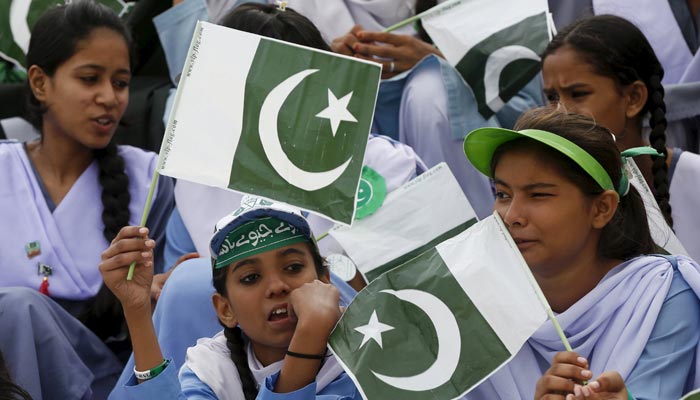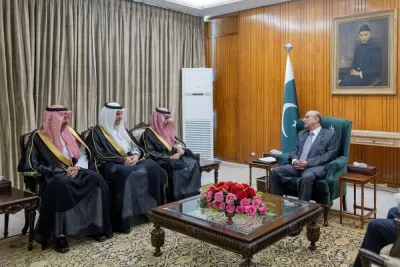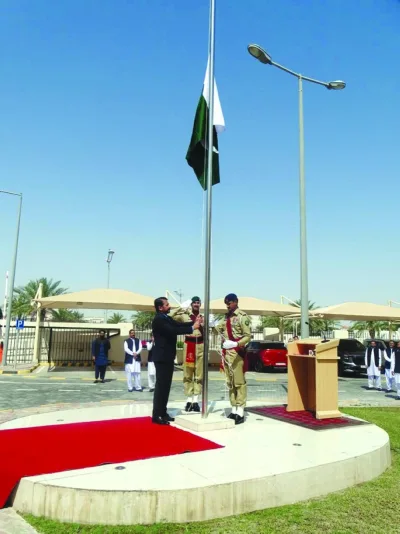Students hold national flags during a ceremony to celebrate Pakistan's 69th Independence Day at the mausoleum of Muhammad Ali Jinnah in Karachi on Friday.
Reuters/Islamabad
Pakistan lodged a diplomatic protest with India on Friday over its decision to release a man jailed over a 2007 train bombing that killed 68 people, most Pakistanis.
The protest to the Indian Deputy High Commissioner, made as Pakistan celebrated the anniversary of its separation from India and independence from Britain, comes as the two nations prepare for a high-level meeting on August 23-24.
That will be the first serious effort in months to improve strained relations, though the two sides have vastly different expectations.
"The Government of Pakistan expects India to take steps to bring to justice all those involved in the heinous act of terrorism on the Samjhauta Express, in which 42 Pakistani innocent citizens lost their lives," it said in a statement.
The Indian government did not immediately respond to requests for comment.
Swami Aseemanand, a Hindu holy man or 'sadhu' and former member of the nationalist organisation Rashtriya Swayamsevak Sangh, was jailed in 2010 after admitting involvement in the attack on the train, which was en route to the eastern Pakistani city of Lahore.
He later said he was tortured to give a false statement, and earlier this month India's premier investigation agency announced it would not oppose a court's decision last year to grant him bail.
Pakistan said it had "serious reservations on the efficiency of the court in processing and disposal of cases regarding terrorism, especially those involving deaths of Pakistani citizens".
In April, Pakistan infuriated India by granting bail to Zaki-ur-Rehman Lakhvi, accused of plotting a 2008 militant assault in Mumbai that killed 166 people.
India wants to use the August 23-24 meeting to present proof that Pakistan is orchestrating deadly militant attacks on Indian soil. Pakistani officials say the accusations are false and that they want to talk about improving ties, not just militancy.



